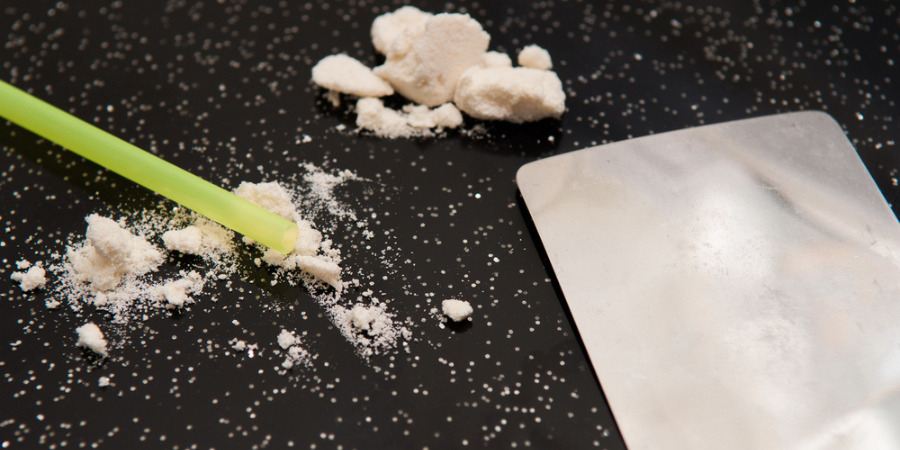Last Updated:
July 21st, 2025
Crack Cocaine Addiction | Signs, Effects and Causes
What is crack cocaine?
Crack cocaine is a powerful stimulant derived from powdered cocaine through a chemical process that forms a rock-like crystal. It is usually smoked, which allows the drug to reach the brain rapidly, producing an intense and immediate high.
From a legal standpoint, crack cocaine is classified as a Class A drug in the UK, meaning its possession, distribution or production is illegal. This classification reflects its high potential for abuse and severe health risks. Understanding what crack cocaine is helps highlight the serious consequences associated with its use.

Is crack cocaine addictive?
Crack cocaine is one of the most addictive substances due to its profound effect on the brain’s reward system. When smoked, it floods the brain with dopamine, a neurotransmitter responsible for pleasure and reward.
This dopamine surge creates a brief but intense feeling of euphoria, often described as a ‘rush.’ However, this effect fades quickly, leaving users craving more to regain that feeling. Repeated use rewires the brain, making it difficult to experience pleasure from anything other than the drug, creating a cycle of dependence that is challenging to break without professional support.
Crack Cocaine in the UK
Crack cocaine continues to be a major concern in the UK’s drug treatment landscape. Between 2023 and 2024, 19% of the 158,991 people who sought help for substance use problems reported crack cocaine as their primary issue. This highlights the persistent challenge of tackling crack addiction across the country.
Interestingly, data also shows a strong link between crack cocaine use and other substances, particularly opiates. Nearly half (48%) of adults in treatment reported using either crack, opiates or both. While 23% reported using both substances, only 3% of people used crack cocaine without opiates, suggesting that combined use is more common than standalone crack addiction.
The connection likely stems from the contrasting effects of these drugs. Crack’s intense, short-lived high can lead to a harsh comedown, prompting some users to turn to sedatives like opiates to balance out its effects. This dangerous cycle complicates recovery, making specialised treatment crucial.
The negative impact of crack cocaine addiction
Crack cocaine addiction can infiltrate every aspect of a person’s life, causing lasting damage beyond physical health. Below, we look at some of the key areas of a person’s life that crack cocaine addiction can affect:
Respiratory problems such as chronic coughing, lung damage, and breathing difficulties are frequent due to smoking the drug. Long-term use can also strain the heart, causing irregular heartbeats and increasing the risk of heart attacks or strokes.
Over time, the chemical disruption caused by the drug affects memory, decision-making, and emotional regulation, making everyday tasks increasingly difficult.
Social isolation becomes common as users withdraw from supportive relationships, preferring environments where drug use is accepted or overlooked.
What are the signs of crack cocaine addiction?
Recognising the signs of crack cocaine addiction can be the first step toward recovery, whether you are concerned about yourself or a loved one. Below, we take a look at the key signs in different areas:
- Rapid weight loss: Crack cocaine suppresses appetite, causing severe weight loss.
- Dental problems: Teeth grinding and dry mouth can result in serious dental decay.
- Frequent nosebleeds or breathing issues: Due to smoking crack cocaine.
- Dilated pupils and heightened energy: A tell-tale sign of crack cocaine use.
- Fatigue and exhaustion: Following the drug’s intense high and inevitable crash.
- Severe mood swings: Users can rapidly switch between euphoria and intense depression.
- Paranoia and hallucinations: Crack cocaine can induce irrational fears and vivid hallucinations.
- Restlessness and anxiety: Increased nervousness and irritability are common.
- Memory loss and confusion: Chronic use impairs cognitive functions, affecting memory and decision-making.
- Secretive behaviour: Hiding crack cocaine use from friends and family.
- Neglecting responsibilities: Failing to meet work, school or family obligations.
- Financial struggles: Spending significant amounts of money on the drug.
- Risky behaviour: Engaging in illegal or dangerous activities to obtain crack cocaine.
- Social withdrawal: Avoiding loved ones and previously enjoyed activities.
Where can I get help for a crack cocaine addiction?
If you or someone you care about is struggling with crack cocaine addiction, seeking professional help can be life-changing. Recovery might feel overwhelming but reaching out to experienced healthcare providers can provide the guidance and support needed to begin the healing process.
Effective treatment for crack cocaine addiction usually involves three key stages:
- Detox: A medically supervised detox programme helps manage withdrawal symptoms safely. This critical first step clears the body of harmful substances, preparing individuals for further treatment.
- Therapy: Evidence-based therapies such as cognitive-behavioural therapy (CBT), dialectical behaviour therapy (DBT), and one-to-one counselling address the root causes of addiction. Therapy provides coping strategies, helps rebuild relationships, and improves emotional well-being.
- Aftercare: Recovery doesn’t end with treatment completion. Aftercare services, including support groups and relapse prevention plans, are essential for long-term sobriety and emotional stability.

If you or someone you know is ready to break free from crack cocaine addiction, contacting a healthcare professional can be the first step toward lasting recovery. Compassionate, experienced support is available to help you regain control of your life.
Our compassionate team are ready and available to take your call, and guide you towards lasting the lasting addiction recovery you deserve.
Frequently Asked Questions
(Click here to see works cited)
- “Adult Substance Misuse Treatment Statistics 2023 to 2024: Report.” GOV.UK, www.gov.uk/government/statistics/substance-misuse-treatment-for-adults-statistics-2023-to-2024/adult-substance-misuse-treatment-statistics-2023-to-2024-report. Accessed 12 Dec. 2024.

